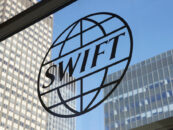
Smart Home Payments Transaction Value to Skyrocket, Driven by Voice Assistants
by Fintech News Singapore November 9, 2020The total transaction value of smart home payment will exceed $164 billion in 2025, from $22 billion in 2020 according to a new study by Juniper Research. This was outlined in its Assessing the Smart Home Payments Opportunity whitepaper.
The increasing use of voice assistants via smart speakers for e-commerce, propelled by rising user and merchant acceptance, will reportedly drive a dramatic growth of over 630% in total value over the next five years.
The report predicts that the use of smart displays will be transformative for voice payments in the home, allowing users to see products and confirm purchases.
To facilitate this, voice assistant vendors must ensure that the checkout process handoff between smart speakers and smart displays is seamless in order to unlock more complex and higher cost purchases.
The new research, found that utilising existing digital wallets is crucial to the success of smart home payments.
It recommends that smart home device manufacturers combine the massive installed base of payment-enabled smart home devices, which is projected to be over 2.7 billion by 2025, with popular digital wallets such as Google Pay or PayPal, to best access existing digital payments users.
Research co-author Nick Maynard explains,
“Smart home device vendors must prioritise payments acceptance by merchants, making the integration of digital wallets a top priority for smart home vendors. This integration will enable smart home vendors to deliver a compelling and familiar user experience, whilst also ensuring the security required for success.”
The research found that connected TV payments will be highly significant, accounting for over 20% of total transaction values in 2025, and supported by strong levels of content purchases.
However, the opportunities for connected appliance payments will be limited, accounting for under 1% of total smart home payments values in 2025, as they are restricted by the high price of payment-capable appliances and the lack of supporting delivery services.







